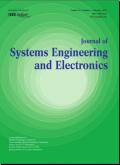基于信念规则结构的异构信息融合识别方法
IF 2.1
3区 计算机科学
Q3 AUTOMATION & CONTROL SYSTEMS
引用次数: 0
摘要
针对现有态势感知研究侧重于多传感器数据融合,但专家知识未得到充分利用的问题,提出了一种基于信念规则结构的异构信息融合识别方法。通过定义连续概率犹豫模糊语言术语集(CPHFLTS)并建立CPHFLTS距离度量,通过信息融合构建特征空间与类别空间关系的信念规则库,并对输入样本进行证据推理。实验结果表明,所提出的方法可以充分利用传感器数据和专家知识进行识别。与其他方法相比,所提出的方法在不同噪声水平下具有更高的正确识别率。本文章由计算机程序翻译,如有差异,请以英文原文为准。
Heterogeneous Information Fusion Recognition Method Based on Belief Rule Structure
To solve the problem that the existing situation awareness research focuses on multi-sensor data fusion, but the expert knowledge is not fully utilized, a heterogeneous information fusion recognition method based on belief rule structure is proposed. By defining the continuous probabilistic hesitation fuzzy linguistic term sets (CPHFLTS) and establishing CPHFLTS distance measure, the belief rule base of the relationship between feature space and category space is constructed through information integration, and the evidence reasoning of the input samples is carried out. The experimental results show that the proposed method can make full use of sensor data and expert knowledge for recognition. Compared with the other methods, the proposed method has a higher correct recognition rate under different noise levels.
求助全文
通过发布文献求助,成功后即可免费获取论文全文。
去求助
来源期刊

Journal of Systems Engineering and Electronics
工程技术-工程:电子与电气
CiteScore
4.10
自引率
14.30%
发文量
131
审稿时长
7.5 months
期刊介绍:
Information not localized
 求助内容:
求助内容: 应助结果提醒方式:
应助结果提醒方式:


